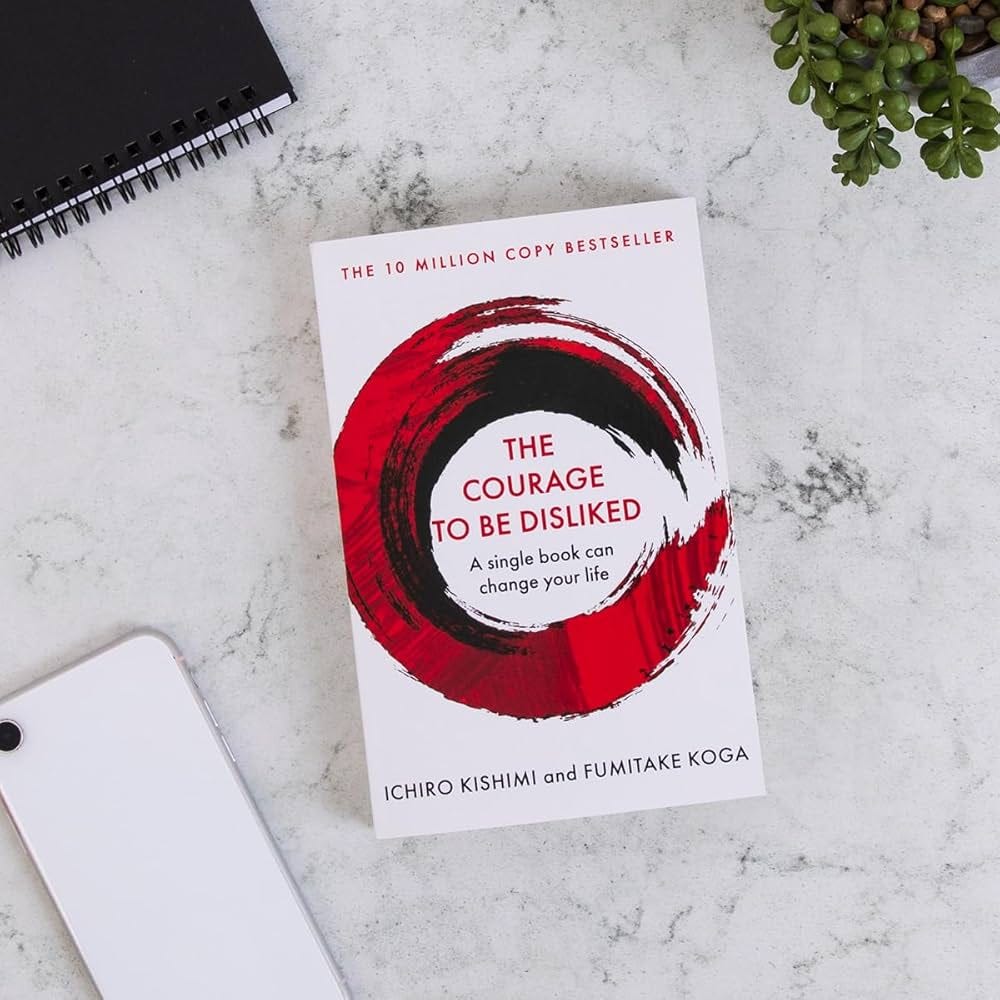I needed to read a self help book recently.
I know self-help books have a reputation of being superficial feel good. Thankfully, Courage To Be Disliked, the first one I picked up, wasn’t that.
In fact, it was quite a tough book to digest. One week on, I’m still mulling over some of its teachings. I’m so intrigued, I’ve started reading its sequel, Courage To Be Happy.
While on my learning journey, I wanted to share 3 lessons I’m trying to incorporate into my life. Warning: they’re not the easiest things to do.
Treat every relationship horizontally: I used to see relationships vertically, which meant that people were either above, on par with, or below me. This made me very anxious talking to people whom I viewed as better than me, and dismissive of those worse than me. Treating everyone on the same level eliminates this internal ranking system. It ultimately also helps me feel less self conscious about how I might be perceived (keyword, “might”) by others. I don’t know how I can eventually see everyone as “the same”, but I think starting with “everyone has the same value as me” should be a good start.
Shine a light on my present: One of the biggest revelations in the book is there’s no such thing as the past, only stories we tell ourselves to justify our present. It kind of makes sense. I’m 28 years old. Why do I distill my life story to those few paragraphs? Also, happiness doesn’t come from future achievements; it’s an endless chase. Anyway, great outcomes result from great journeys, so what I’m doing now is just fine. It’s pointless to sweat over a million possibilities.
Happiness comes from service to others: Another big revelation in the book is all problems are interpersonal problems. You can always draw links from your problems to your relationship with others. Upset about work? Dispute with a coworker. Upset about your body? Insecure about how your partner might see you. Turn a problem into a solution: improving relationships alleviate problems. This shifted my perspective from the self to being part of the world. Which also explains how helping others (i.e. nurturing relationships) ends up making us happier people.
I wrote last week that I wasn’t going to buy clothes for the next 10 years. Creating a list of what I could buy in 2035 made me realise it’s very likely versions of what I already own. Why, then, do I obsess over the list rather than appreciate what’s actually in my closet right now?
If you’ve read Courage To Be Disliked, I’d love to hear what you took away from the book. And if you have recommendations on other self-help books that are worth a read, let me know!



